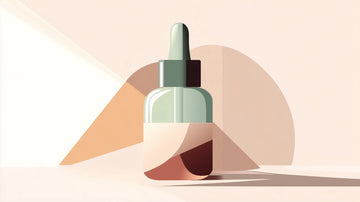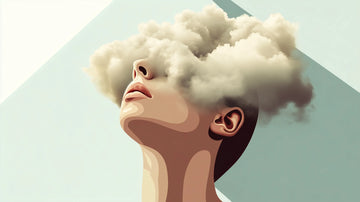During menopause, the decrease in estrogen leads to increased dehydration, which may worsen fatigue. Maintaining proper hydration is essential to support your energy and cognitive functions. Here are the key points to remember:
-
Why hydration is important:
- The body contains less water after menopause (around 55% compared to 60–70% before).
- Mild dehydration (1–2 %) can reduce cognitive functions and cause fatigue.
-
Signs of dehydration:
- Dark urine, dry mouth, fatigue, headaches, difficulties concentrating.
-
Practical advice:
- Drink 1.5 to 2 litres of water per day (more if you sweat a lot).
- Consume water-rich foods such as cucumber, watermelon, or strawberries.
- Monitor the color of your urine: pale yellow = good hydration.
-
Beverages and foods to prioritize:
- Herbal teas (sage, red clover), still or sparkling water, and electrolyte drinks if necessary.
- Avoid alcohol, excessive coffee, and sugary sodas.
Adopting these simple habits can help you reduce fatigue and regain your energy on a daily basis!
Related YouTube video
Understanding dehydration and fatigue
Dehydration particularly affects menopausal women, with direct effects on their energy. This phenomenon is linked to the hormonal changes that occur during this period.
How water acts on energy
The decrease in estrogen disrupts the body's water balance, leading to a drop in blood volume and brain functions. Eileen Durward, a menopause counselor, explains:
Estrogen acts like a sponge. When it circulates in your body, it helps to retain this precious water in your cells. So, when your estrogen levels start to fluctuate and drop during perimenopause and menopause, your body's ability to remain hydrated decreases.
The consequences of this decline are multiple:
- A decrease in blood volume, limiting oxygen delivery to the cells
- A negative impact on brain function due to insufficient hydration
Identify the signs of dehydration
Dr. Alyssa Dweck, Chief Medical Officer, emphasizes the importance of staying hydrated during menopause:
With menopause and age, the body’s water content decreases, partly due to decreased estrogen levels. Staying hydrated is important at any age. This is particularly useful for those managing menopause-related hot flashes and night sweats, which can be excessive and lead to dehydration.
Here are the main signals to watch out for:
| Early signs | Advanced signs |
|---|---|
| Dark and foul-smelling urine | Headaches |
| Frequent urge to urinate | Heart palpitations |
| Concentration difficulties | Joint pain |
| Fatigue and lethargy | Muscle cramps |
| Dry mouth | Constipation |
It is important to note that the sensation of thirst is not always a reliable indicator for menopausal women, as this perception diminishes with age. A simple tip: monitor the color of your urine. A light, pale hue is a good sign of hydration. These guidelines will help you adjust your habits to remain well hydrated. Let’s now explore some practical tips to improve your hydration.
How to stay hydrated
Now that you know how dehydration can contribute to fatigue, let's look at how you can better hydrate on a daily basis.
Your water needs
During menopause, your water needs increase. Good hydration helps to compensate for the decrease in blood volume, supports your brain functions, and boosts your energy level.
Here are some simple recommendations:
- Drink between 1.5 and 2 liters of water per day (approximately 6 to 8 glasses).
- If you experience hot flashes or sweat heavily at night, consider increasing your water intake.
Water-rich foods
Did you know that certain foods also contribute to your hydration? About 20% of your water intake comes from what you eat. Here is a list of particularly hydrating foods:
| Food | Moisture content |
|---|---|
| Lettuce | 96 % |
| Cucumber | 95 % |
| Celery | 95 % |
| Tomatoes | 94 % |
| Watermelon | 92 % |
| Bell peppers | 92 % |
| Strawberries | 91 % |
Tips for drinking more water
If you have trouble drinking enough water, these tips might help you:
- Start your day with a big glass of water.
- Use a reusable bottle with measurements to track your consumption.
- Make it a habit to drink a glass of water before every meal.
- Add fresh fruits or herbs (such as mint) to flavor your water.
- Alternate between still and sparkling water to vary the pleasures.
- Set reminders on your phone so you don't forget to drink.
By incorporating these simple gestures into your routine, you will be able to combat fatigue and feel better on a daily basis during menopause.
Other sources of hydration
In addition to water, several natural beverages can contribute to your daily hydration. Herbal teas and enriched drinks, for example, can play a complementary role.
Herbal teas to prioritize for hydration
Caffeine-free herbal teas are an ideal option for staying well hydrated, especially during menopause. Some plants possess interesting properties:
| Plant | Main Benefits |
|---|---|
| Sage | Reduces hot flashes |
| Ginseng | Reduces night sweats |
| Red Clover | Promotes better sleep |
| Valerian root | Helps calm anxiety and insomnia |
| Liquorice | Reduces hot flashes |
Choose organic, caffeine-free herbal teas, as caffeine can exacerbate hot flashes, palpitations, or sleep disturbances.
When to opt for electrolyte drinks
Electrolyte drinks can be useful in certain specific situations, such as:
- In case of significant sweating due to hot flashes
- If you experience signs of dehydration, such as headaches or muscle cramps
Beverages to limit or avoid
Some beverages may exacerbate the menopause symptoms or contribute to dehydration:
- Café : Avoid consuming it in the late afternoon in order not to disturb your sleep.
- Sugar-sweetened sodas: They often contain a large amount of sugar, sometimes up to 8 teaspoons per can.
- Fruit juice: Although they are rich in vitamins, their high sugar content can lead to spikes in blood sugar.
- Alcohol: It has a dehydrating effect and can disrupt sleep.
For better hydration, opt for electrolyte drinks with no added sugar. If you enjoy tea, choose green tea or decaffeinated versions, which retain their antioxidant properties while being gentler on your body.
Research-based hydration solutions
Dehydration of only 2% can lead to neurological fatigue. During menopause, maintaining proper hydration is essential to reduce fatigue. Some natural formulations can help optimize this balance.
It is in this context that specific solutions, such as those offered by Laboratoires üma, stand out to support energy.
The products of Laboratoires üma

The supplement Harmonie Daily® (35,00 €) combines specific ingredients to restore energy and promote mental balance. According to clinical studies, 94% of women report a significant improvement in their symptoms after 30 days of use.
The key ingredients for a boost of energy
Laboratoires üma's formulations are based on components validated by science:
| Ingredient | Benefits for Energy |
|---|---|
| Schisandra berries | Enhances concentration and strengthens physical endurance |
| Zinc | Supports energy metabolism |
| Vitamin B6 | Reduces fatigue and contributes to the proper functioning of the nervous system |
By combining these ingredients with regular hydration, it is possible to naturally improve energy levels during menopause. Here are some tips to make the most of them:
- Drink regularly throughout the day.
- Favor water-rich foods, such as fruits and vegetables.
- Compensate for electrolyte losses, especially in the case of hot flashes.
- Observe the color of your urine: a pale yellow is a good indicator of adequate hydration.
Summary
Key Points
Slight dehydration can have a notable impact on the energy of menopausal women. A loss of only 2% of water can affect neurological functions.
| Aspect | Impact on energy |
|---|---|
| Body Composition | Hydration accounts for 60–70% of the body in young people, but decreases to about 55% during menopause. |
| Brain | Composed of 80% water, it requires adequate hydration to maintain optimal energy production. |
| Daily needs | 6 to 8 glasses of liquid per day, according to the recommendations of the NHS Eat Well guide |
This information can help you regain your energy and achieve improved mental clarity.
Next steps
Here are some simple actions to improve your hydration:
- Calculate your needs: Multiply your weight (in kg) by 0.033 to determine the daily amount of water to be consumed (in liters).
- Monitor the color of your urine: Clear urine is a good indicator of hydration.
- Facilitate access to water: Keep a carafe on your desk and a water bottle within reach.
"Even a minimal loss of water, like 2% reduction, which is not even clinical dehydration, it's just a very mild dehydration – it can actually cause neurological symptoms, like estrogen brain fog, confusion, fatigue, dizziness and even worse. Brain imaging studies have shown that people who are just mildly dehydrated show brain shrinkage as compared to those who are well-hydrated." - Dr. Lisa Mosconi, Neuroscientist






